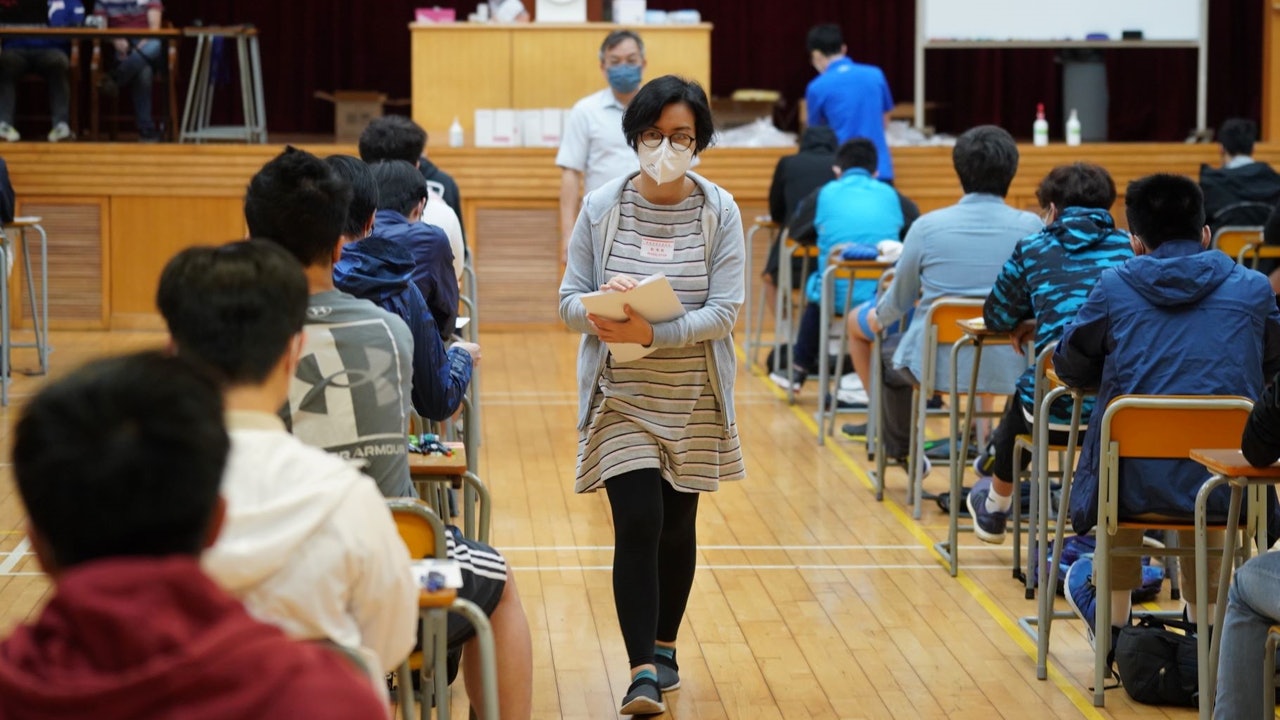The government released the "Hong Kong Innovation and Technology Development Blueprint" earlier, which mentioned local re-industrialization.
However, Legislative Council member Zhou Haoting of the Democratic Alliance for the Betterment of Hong Kong noticed that the highest grade of Applied Learning subjects in Category B of the Hong Kong Diploma of Secondary Education Examination (DSE) is only 4, but the highest grade of Category A subjects is 5**, questioning that the Education Bureau has dwarfed Vocational education is suspected of bluntly detrimental to the development of re-industrialization in Hong Kong.
The highest scores of DSE Class A and Class B subjects are not the same. Class A can reach 5**, while Class B can only have a maximum score of 4.
(profile picture)
Including subjects such as "artificial intelligence and robotics"
Category B Applied Learning subjects in the HKDSE include "Artificial Intelligence and Robotics", "Electrical and Energy Engineering", "Smart Digital Construction", etc., while Category A senior secondary subjects include "Chinese Language", "English Language", " Mathematics, etc.
Zhou Haoding asked through a written question today (18th) whether the government has plans to unify the grades and treatment of Type B Applied Learning subjects in the HKDSE with Type A senior high school subjects, so as to attract students to choose Applied Learning subjects.
The Secretary of the Education Bureau, Cai Ruolian, replied in writing that the learning objectives, content, class hours, learning modes and assessment methods of Type A and Type B subjects are different, so it is inappropriate and should not be directly compared between the two types of courses, or simply unify the two types of courses This is not conducive to taking care of the learning differences of students.
She continued that the Education Bureau will maintain communication with various stakeholders, including universities, post-secondary institutions and employers, to increase the recognition of applied learning, and continue to promote applied learning as a valuable high school elective subject to further attract Students choose Applied Learning.
Zhou Haoting believes that Hong Kong will develop re-industrialization, and the demand for local industrial talents will also increase.
(File photo/photo by Zheng Zifeng)
The demand for local talents increases and Class B should be upgraded
Zhou Haoting expressed his disappointment with the government's reply. He believed that the difference in grading between the two types of subjects may be suspected of dwarfing vocational education, giving people a feeling that Type B subjects are "surplus sugarcane", which makes students who study related subjects seem to be congenital. Dwarves first class.
He said that since Hong Kong is going to develop re-industrialization and the demand for local industrial talents is increasing, the Class B subjects should be upgraded.
He also suggested that the authorities set up courses on semiconductors and new energy vehicles for students to study.
Advocating DSE Chinese subjects, civil service exams must take Putonghua Su Changrong: The examination system has not created pressure for DSE to enter higher education | HKUST’s multi-entry program attracts talents from all walks of life | Must-see for DSE students | day

